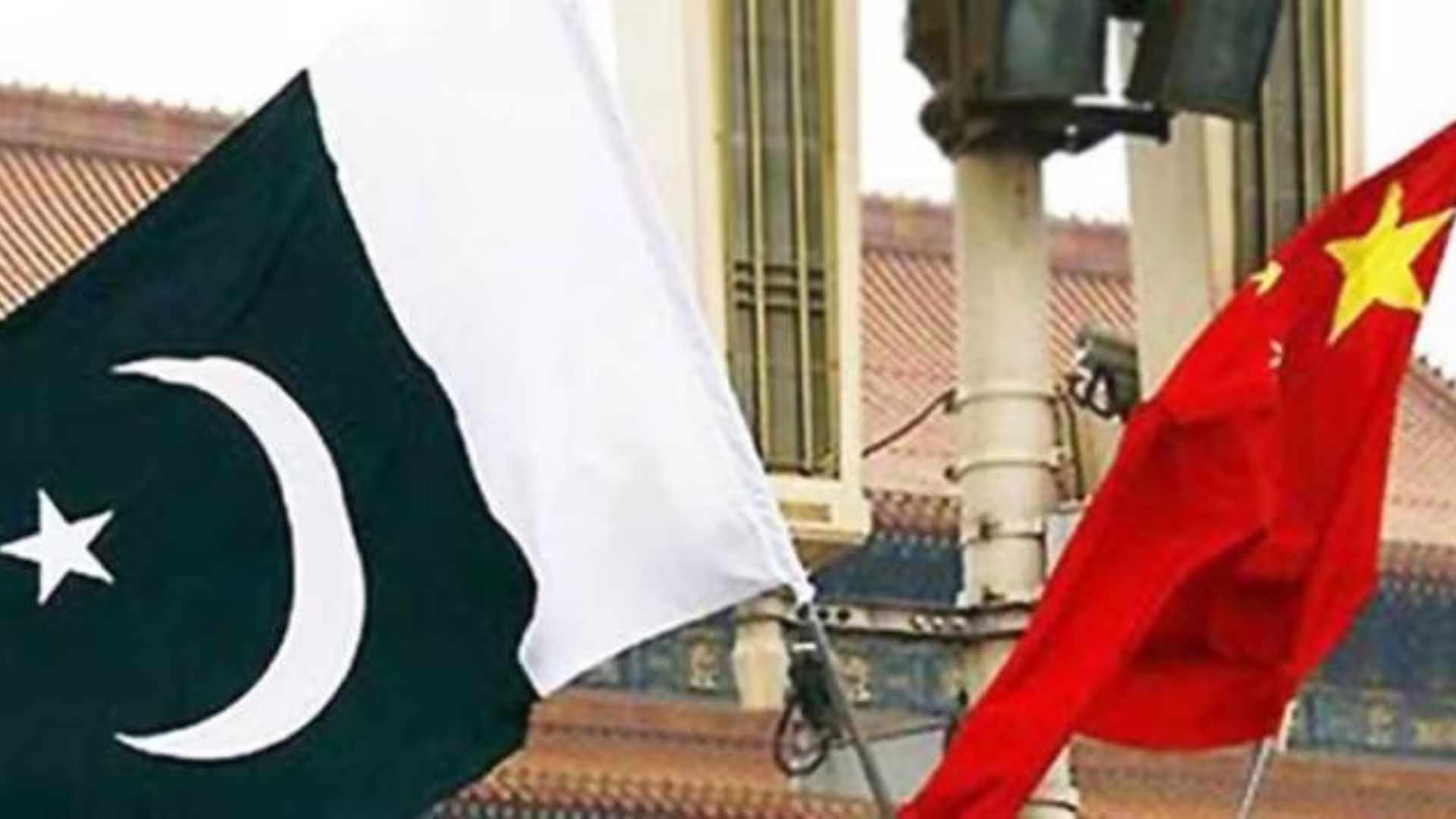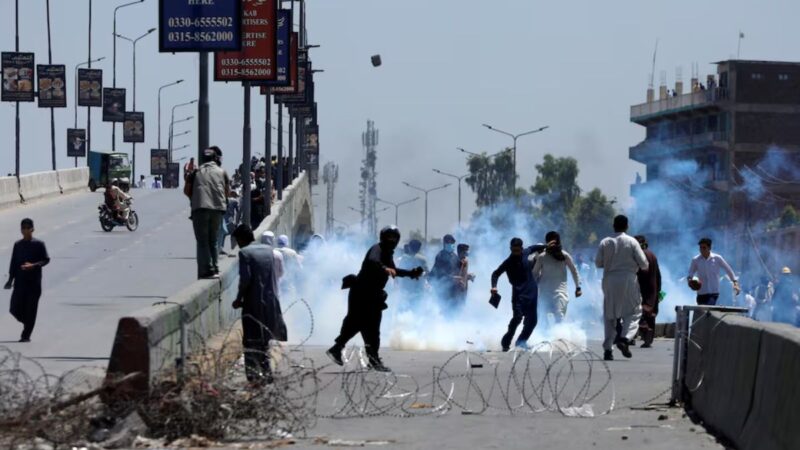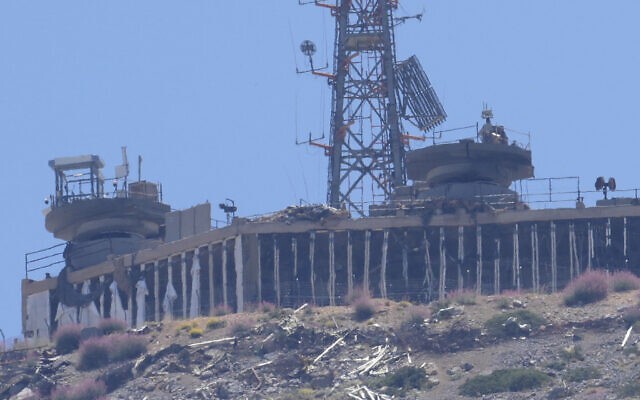As militancy threatens next phase of CPEC, Pak PM tries to assure Beijing of Chinese personnel’s security

Pakistan and China have vowed to protect the China-Pakistan Economic Corridor (CPEC) from its “detractors and adversaries”, as Pakistan’s Prime Minister Shehbaz Sharif met his Chinese counterpart Li Qiang during his five-day official visit to China and assured Beijing of providing complete security to Chinese personnel working on the USD 65 billion CPEC project, which is a key part of the Asian major’s Belt and Road Initiative (BRI).
The Pakistan Prime Minister’s Office, in a statement, said during the meeting, the two sides discussed the significance of Gwadar as an important pillar of the CPEC and agreed to expedite the timely completion of all related infrastructure projects to transform Gwadar in Balochistan province into a regional economic hub.
According to the statement, leaders of the two nations also expressed their firm commitment to protect CPEC from its “detractors and adversaries” and to upgrade CPEC in the form of enhanced cooperation.
Pakistan’s Geo News reported that the Pak PM and his Chinese counterpart reaffirmed unwavering support for each other on core issues and expressed continued commitment and support for the high-quality development of the CPEC.
As per reports, the two leaders also emphasised the timely completion of all ongoing projects with a special focus on industrial development, agriculture modernisation, Science & Technology and the development of Special Economic Zones (SEZ) for mutually beneficial and socio-economic development of Pakistan.
Shehbaz Sharif reaffirmed Islamabad’s unflinching resolve to ensure the safety and security of Chinese personnel and projects in Pakistan. But are the words enough amid the wave of militancy and anger in the region?
Chinese personnel working in various projects under CPEC in Pakistan have been a frequent target for the terrorist groups operating in the South Asian nation, as a number of official-workers from China were killed in multiple terrorist attacks.
In March, five Chinese engineers were killed when a suicide bomber struck their vehicle near the Dasu hydropower project.
The incident was the third deadly attack on or near Chinese interests in the period of a week.
According to media reports, Pakistan paid a total of $2.5 million in compensation to families of the Chinese engineers, who were killed in the March attack, and arrested 11 suspected militants for their alleged involvement in the terror attack.
In April, five Japanese nationals survived a suicide attack in Karachi, Pakistan’s commercial capital, after being mistaken for Chinese workers, as reported by Nikkei Asia, citing local authorities.
Earlier in 2021, nine Chinese engineers were killed in a similar attack near Dasu.
Following the suicide attack on Chinese engineer in Dasu, authorities in Pakistan beefed up security around two cities in northern Pakistan — Dasu and Chilas — that are key hubs for Chinese workers as the string of deadly terrorist attacks aggravated tensions with China and put future investment at risk.
Chilas, which hosts the Diamer Bhasha Dam being built by Chinese engineers, has been the scene of attacks on the Pakistani security forces.
The fresh wave of deadly terrorist attacks targeting Chinese personnel, investments, and sites of geostrategic significance has pushed China into going public with its concerns over the lack of security in Pakistan.
Besides hampering the next phase of CPEC, the security concern is also threatening the China-Pakistan relationship.
Following the attack, the Chinese Foreign Ministry urged the country’s citizens and businesses to “take extra safety precautions” and “do their best to guard against terrorist attacks” in Pakistan.
“We ask Pakistan to take effective measures to protect the safety and security of Chinese nationals, institutions, and projects,” a statement from the Chinese Foreign Ministry read.
According to a report by The Diplomat, China’s concerns have been expressed much more unequivocally in private.
After facing a major political and constitutional turmoil, Pakistan has now been battling a surge in militant activity involving myriad groups ranging from Islamists aiming to topple the government to separatists seeking to carve out a homeland in the southwestern province of Balochistan, home to Gwadar Port, which is the centerpiece of the CPEC.
According to a report by Nikkei Asia, China has repeatedly urged Pakistan to do more to protect its nationals and investments, which cash-strapped Pakistan sorely needs.
Meanwhile, Beijing also pushed Islamabad to allow private Chinese security contractors to operate in its territory to protect its personnel and sites, but Pakistan has so far rejected those requests.
Nikkei Asia reported, quoting Fakhar Kakakhel, an independent analyst specializing in militancy in Pakistan, that despite repeated assurances by the Pak government, Beijing still has reservations about the security situation.
“By developing security enclaves, Pakistan wants to provide relief to Chinese workers who are working in the atmosphere of fear and uncertainty in that region,” Kakakhel told Nikkei Asia.
Earlier in 2020, Pakistan had planned a security enclave and started erecting a barbed wire security fence around key port town Gwadar to protect Chinese personnel who were unable to move freely outside their compound because of security threats, but the project was shelved after local people protested against it.
Counterterrorism experts said such security enclaves further widen the divide between China and local communities.
Another security threat for Chinese nationals in Pakistan is the Tehreek-e-Taliban Pakistan (TTP), a banned militant group that aims to overthrow the Pakistani government.
The Pak government had accused the TTP of carrying out the attack on Chinese workers near Dasu in March.
According to Fakhar Kakakhel, the Pakistani authorities can not guarantee security to Chinese personnel unless the Taliban militancy threat is dealt with.






